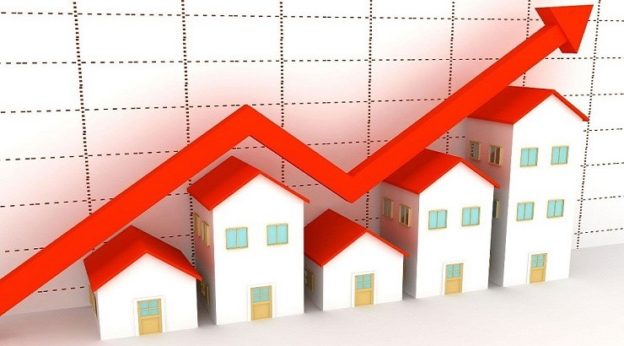Grade I players are likely to see a surge in growth from a moderately strong base, while non-Grade I players are likely to see a reversal of the sharp decline experienced in FY21.
 Affordability (as measured by the ratio of house price index and salary index) has steadily improved since FY15, as the average increase in salaries well exceeded the average increase in house prices.The residential real estate sector may stage a sharp K-shaped recovery in FY22. However, the overall sales in FY22 could still be around 14% below the FY20 level, according to India Ratings and Research (Ind-Ra).
Affordability (as measured by the ratio of house price index and salary index) has steadily improved since FY15, as the average increase in salaries well exceeded the average increase in house prices.The residential real estate sector may stage a sharp K-shaped recovery in FY22. However, the overall sales in FY22 could still be around 14% below the FY20 level, according to India Ratings and Research (Ind-Ra).
Grade I players are likely to see a surge in growth from a moderately strong base, while non-Grade I players are likely to see a reversal of the sharp decline experienced in FY21.
The overall floor space sold is likely to increase by 30% yoy in FY22 after a 34% yoy decline in FY21. The recovery will likely be dominated by Garde I players, whose sales are likely to grow by 49% yoy in FY22, after a 14% yoy increase in FY21. Non-Grade I players are also likely to see their sales rise by 26% yoy in FY22, after a 39% yoy decline in FY21.
Consolidation to Accelerate: The total residential floor space sold in India remained largely stagnant at 326 million sq ft (msf) in FY20 (FY18: 328msf). Floor space sold declined 41% yoy in 9MFY21 (3QFY21: negative 24.8% yoy) and Ind-Ra expects them to be down 34% yoy in FY21. Grade I players, however, have managed to buck the trend. They saw their sales increase at a CAGR of 19.7% from FY18-FY20 as their market share expanded to 9.8% in FY20 from 6.8% in FY18. The market share expanded to 15.6% in 9MFY21 as they managed to report a 4.3% yoy increase in sales despite the pandemic.
Non-Grade I players are generally struggling because buyers are sceptical about their ability to timely deliver projects and their access to financing remains constrained. These factors have become more pronounced during the pandemic. Ind-Ra expects continued market share gains by Grade I players, as Grade II players will likely struggle to catch-up from the setbacks and delivery slowdowns suffered during the pandemic.
Housing Affordability Improving: Affordability (as measured by the ratio of house price index and salary index) has steadily improved since FY15, as the average increase in salaries well exceeded the average increase in house prices. Ind-Ra expects the improved affordability to help spur residential real estate demand.
Lower Gap between Rental Yield and Mortgage Rates to Promoter House Ownership: In some of the cities, such as Hyderabad and Bangalore, rental yields could be 3%-4% yoy higher in FY22. With mortgage rates falling below 7% in FY22, the gap between the rental yield and mortgage rates is narrowing and is likely to promote home ownership.
Declining Interest Rate to Further Improve Affordability: Apart from a lower ratio of house price to salary, a lower interest rate environment is likely to improve the affordability of house ownership as mortgage rates decline.
Liquidity Ratio to Remain Strong for Grade I Players: Ind-Ra emphasises on cash flow measures for assigning credit ratings to real estate players. In this context, the liquidity ratio (i.e. the ratio of known sources of cash inflow to expected avenues of cash outflow) is likely to remain robust at 1.8x-2x for Grade I players over FY21-FY23. In comparison, the ratio is likely to hover marginally above 1x for Grade II players.
https://www.financialexpress.com/money/residential-real-estate-may-stage-a-k-shaped-recovery-in-fy22-ind-ra/2209901/







